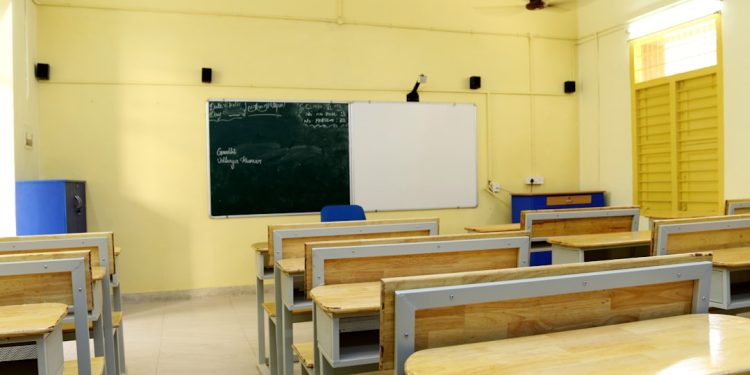No products in the cart.
A Wake-Up Call: The Alarming Trends in K-12 Education
The latest findings from The Nation's Report Card highlight alarming trends in K-12 education, urging immediate action from stakeholders.
The latest findings from The Nation’s Report Card deliver a stark warning about the state of K-12 education in the United States. For many educators, parents, and policymakers, the report reads like a wake-up call—a clarion call for urgent attention to the troubling trends that threaten the academic futures of millions of students.
As the 2025 report reveals, students in grades four and eight are struggling in core subjects like math and reading, with scores reflecting a decline from previous years. This downward trajectory raises critical questions about the effectiveness of educational strategies and the systemic inequities that plague schools, particularly in underserved communities.
 education” loading=”lazy” />
education” loading=”lazy” />These trends are not merely statistics; they represent real lives and futures at stake. As a 16-year-old high school junior from Philadelphia, Maria Gonzalez shared her perspective: “I feel like I’m being set up to fail. We don’t have the resources we need, and it shows in our test scores.” Her sentiment echoes a growing frustration among students across the nation. The data indicates that disparities in access to quality education resources are widening, with marginalized communities bearing the brunt of these inequities.
 Career Planning
Career PlanningUnderstanding the 8th Pay Commission: Calculating Pension Hikes in India
Explore the intricate calculations behind the 8th Pay Commission's pension hikes in India and their wider economic impact.
A recent study by the National Center for Education Statistics (NCES) found that students who experienced prolonged remote learning showed a marked decline in academic performance compared to their peers who returned to in-person classes sooner[1].
Contextually, the report underscores the impact of the COVID-19 pandemic, which exacerbated existing challenges within the education system. School closures, remote learning, and lack of access to technology created significant barriers to learning, particularly for students in low-income areas. A recent study by the National Center for Education Statistics (NCES) found that students who experienced prolonged remote learning showed a marked decline in academic performance compared to their peers who returned to in-person classes sooner[1].
Yet, the implications of the report extend beyond immediate academic performance. The long-term effects of these educational setbacks could ripple through the economy, affecting workforce readiness and social mobility. With the job market increasingly demanding advanced skills, the consequences of inadequate education can be dire. A 2023 report by the Brookings Institution emphasized the correlation between educational attainment and economic opportunity, arguing that failure to address these trends could lead to widening income disparities in the future[2].
However, not all is lost. There are emerging strategies and innovative practices that some districts are employing to combat these challenges. For instance, the implementation of project-based learning and personalized education plans has shown promise in fostering engagement and improving outcomes for students[3]. Educators like John Smith, a middle school teacher in Chicago, advocate for a shift in focus: “We need to prioritize understanding and critical thinking over rote memorization. Our students deserve an education that prepares them for the real world.”
QS World University Rankings 2024: MIT Leads, Asia and India Ascend, Sustainability Shines
The QS World University Rankings 2024 reveal MIT's continued dominance, the rise of Asian and Indian universities, and a new…
Read More →As stakeholders grapple with these findings, the path forward will require collaboration and commitment from all corners—educators, policymakers, families, and community organizations. Initiatives aimed at increasing funding for public schools, investing in teacher training, and ensuring equitable access to educational resources are more critical than ever. Moreover, community engagement can bridge the gap, fostering environments where students feel supported and empowered to thrive.
Looking ahead, the future of K-12 education hangs in the balance. The latest data serves as both a warning and a call to action. As we reflect on the report’s findings, one thing is clear: the stakes have never been higher, and the need for systemic change is urgent.











